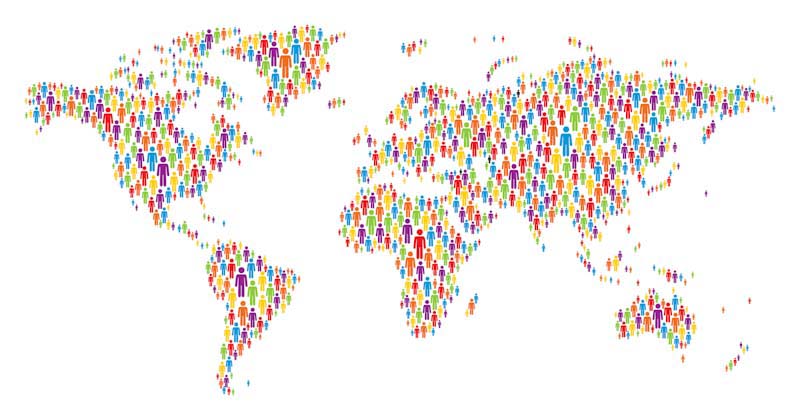Today, we join the world in marking International Human Rights Day. Throughout this year, communities near and far have faced some of the most significant human rights challenges since the United Nations adopted the Universal Declaration of Human Rights in 1948.
The global COVID-19 pandemic has cost the lives of some 1.5 million people worldwide and had devastating impacts on much of our social fabric. This, along with the ongoing challenges of rising authoritarianism, an ongoing struggle to end racism and discrimination, deepening economic inequality, and the intensifying climate crisis, demonstrate the need to renew our commitment to human rights and to each other. That commitment is a central part of the identity of the University of Connecticut.
Twenty-five years ago, UConn established the Thomas J. Dodd Research Center to preserve and extend the human rights legacy of Connecticut Senator Thomas Dodd’s service as Executive Trial Counsel to the International Military Tribunal at Nuremberg. As his son Senator Christopher J. Dodd has recently written, that trial demonstrated to the world both the extent of the Nazis’ crimes and the importance of upholding human rights and the rule of law. We are honored to build on that legacy here at UConn.
Since the dedication of the Dodd Center, human rights has taken root at UConn. Our Human Rights Institute (HRI) is one of the world’s leading academic centers in human rights research, teaching, and outreach.
Faculty across the University work to understand the most pressing human rights issues of our time. Since 2010, the University has provided refuge to persecuted scholars through the Scholars at Risk Program, hosting academics and human rights defenders from Central America, the Middle East, and North Africa. UConn also houses one of the world’s top interdisciplinary journals in this field, The Journal of Human Rights, which tackles pressing issues such as the human rights impact of COVID-19.
We also see in our students their passion to make change. UConn is unique as the only American public university to offer a human rights major. Students have the opportunity to take a large number of human rights-focused courses, such as the history of human rights; international human rights law; refugee campus and humanitarianism; and human rights digital storytelling. We are also proud to see our students extend their advocacy into hands-on work through student organizations and campaigns. This combination of diverse, cutting-edge coursework with hands-on learning opportunities prepares students to be the next generation of human rights advocates, practitioners, and leaders.
As for outreach, this year we embarked on a major new effort to help translate our human rights research and teaching resources into direct impact in communities. In October, we launched Dodd Human Rights Impact as part of HRI, leveraging the former outreach and engagement programs of the Dodd Center into a new initiative focused on fostering a culture of human rights and democracy here in Connecticut and around the world. Through projects including K-12 human rights education, business and human rights, democracy and dialogues, and human rights film and digital media, Dodd Impact engages communities in the practice of human rights, and provides critical opportunities for our students and faculty members to apply human rights knowledge to real world problems.
In the coming year, as we rebuild from COVID-19, we are committed to ensuring human rights are at the foundation of much of our work. As the world began to rebuild from the catastrophe of the Second World War, the new United Nations adopted the Universal Declaration of Human Rights as a core set of principles around which a shared future of peace, justice, and dignity could be pursued. That future is still before us. A review of either the unfolding atrocities listed by the International Crisis Group or US Holocaust Memorial Museum, or the dedicated struggles against injustice waged by the Open Society Foundations or the Equal Justice Initiative (winner of the 2019 Thomas J. Dodd Prize in International Justice and Human Rights) shows this work is ongoing and far-reaching. We are proud of the deep dedication and concern our faculty, staff, and students demonstrate in taking action and raising awareness about many of these issues. Given the scope of crises, it takes many partners and many voices to make an impact.
Sincerely,
Tom, Carl, and Dan
Thomas Katsouleas
President
Carl Lejuez
Provost and Executive Vice President for Academic Affairs
Daniel Weiner
Vice President for Global Affairs



